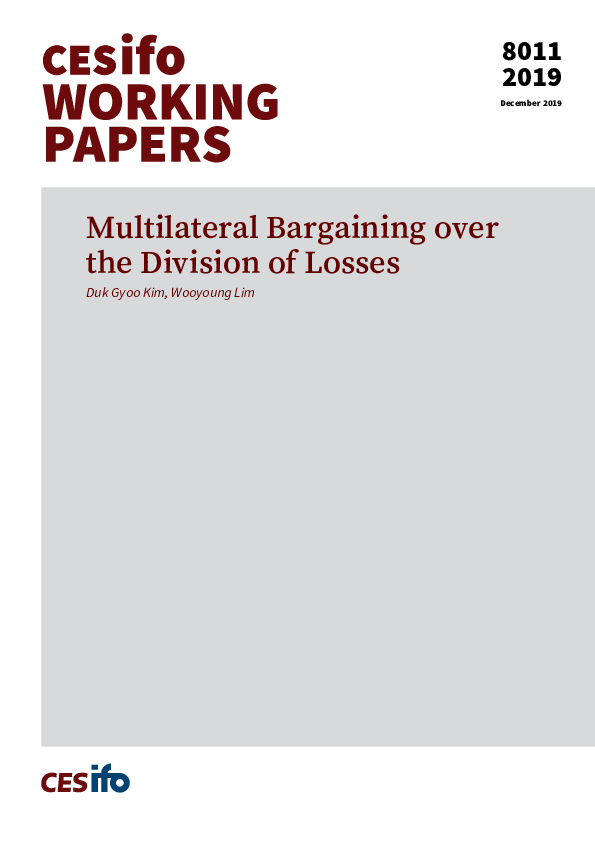Multilateral Bargaining over the Division of Losses
CESifo, Munich, 2019
CESifo Working Paper No. 8011

Many-player divide-the-dollar games have been a workhorse in the theoretical and experimental analysis of multilateral bargaining. If we are dealing with a loss, that is, if we consider many-player “divide-the-penalty” games for, e.g., the location choice of obnoxious facilities, the allocation of burdensome chores, or the reduction of carbon dioxide emissions at a climate change summit, the theoretical predictions do not merely flip the sign of those in the divide-the-dollar games. We show that the stationary subgame perfect equilibrium (SSPE) is no longer unique in payoffs. The most “egalitarian” equilibrium among the stationary equilibria is a mirror image of the essentially unique SSPE in the Baron-Ferejohn model. That equilibrium is fragile in the sense that allocations are sensitive when responding to changes in parameters, while the most “unequal” equilibrium is not affected by changes in parameters. Experimental evidence clearly supports the most unequal equilibrium: Most of the approved proposals under a majority rule involve an extreme allocation of the loss to a few members. Other observations such as no delay, proposer advantage, and the acceptance rate are also consistent with the predictions based on the most unequal equilibrium.